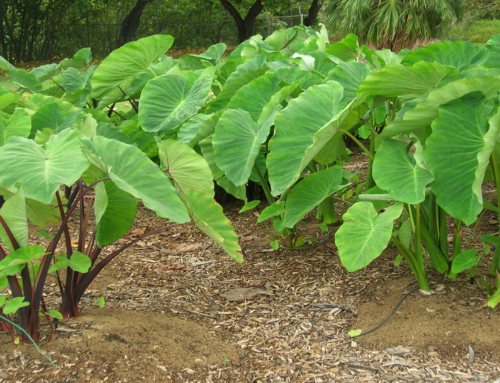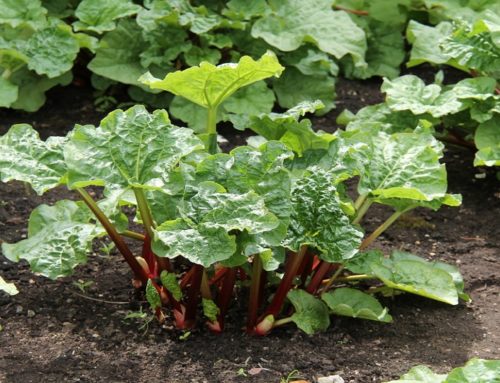Health Benefits of Arugula
Arugula greens are Moisture-Rich foods: 100 g edible portion of arugula leaves contain 91.71g of moisture/water. Due to high moisture content, consumption of raw arugula greens as salads is good for preventing excess body dehydration. Body needs water to regulate the body temperature and for transporting nutrients, removing bodily toxins and waste, and for protecting body organs. A dehydrated body accelerates the ageing process. When body is dehydrated it results in energy loss, headaches and fatigue.
Arugula greens are good source of Vitamin A: According to U.S. FDA (Food and Drug Administration), daily value (DV) of Vitamin A is 5000 IU (international unit). 100 g of edible portion of arugula greens contains 2373 IU of Vitamin A.
(Note: DV means daily amount of nutrient recommended for an adult)
Vitamin A is essential for eye health and also for strengthening body’s natural immune system. Vitamin A is also essential for tissue building, and for the formation of RBCs (red blood cells), skin and bones. Deficiency of Vitamin A results in night blindness, and drying of skin and eyes.
Arugula greens are moderate source of Folic acid or Folate: According to U.S. FDA (Food and Drug Administration), daily value (DV) of folate is 400mcg (micrograms). 100 g of edible portion of arugula greens contains 97mcg of folate. Folic acid is essential for energy production from food. It helps in synthesis of nucleic acids and proper functioning of immune system and blood production by facilitating functioning of iron and increasing production of RBCs. It also helps in controlling protein/amino acid metabolism. It is an important vitamin for pregnant women and for women who are trying to conceive. Major deficiency symptoms of folic acid include birth defects in new born babies, diarrhoea, hearing loss due to ageing, improper functioning of immune system, weakness, fatigue and headaches. Regular consumption of folic acid helps in slowing down progression of hearing loss with ageing; to prevent birth related defects in new born babies; for protection from cancer, heart diseases, depression and degeneration of body due to ageing; and to prevent memory loss and osteoporosis.
Arugula greens are excellent source of Vitamin K: According to U.S. FDA (Food and Drug Administration), daily value (DV) of Vitamin K is 80mcg (micrograms). 100g of edible portion of arugula greens contain 108.6 mcg (micrograms) of Vitamin K. This vitamin is essential for the formation of strong bones, for blood clotting, and for preventing heart diseases, cancer, and osteoporosis. Vitamin K deficiency results in bleeding gums and bleeding nose.
Arugula contains moderate amounts of Vitamin E: Apart from the above-mentioned vitamins, arugula greens contain moderate amounts of Vitamin E also. It is a powerful antioxidant vitamin which helps in formation of new blood vessels and also increases body’s natural immunity.
Arugula greens are moderate source of many health-enhancing minerals such as iron, magnesium, potassium and phosphorus also.
Health Benefits of Broccoli
Broccoli is a powerhouse of Powerful Antioxidants: Foods rich in antioxidants when consumed, regularly prevents modern-day life style diseases such as heart attack, diabetes, cancer and osteoporosis. Broccoli is rich in plant-based antioxidants such as lutein, zeaxanthin, and beta-carotene. 100 grams of edible raw broccoli contains about 1121mcg (micrograms) of lutein and zeaxanthin, and 361 mcg (micrograms) of Beta-carotene.
Broccoli is an excellent source of Dietary Fiber (2.6g/100g): Dietary fiber is good for human body. High fiber foods are good for weight loss as they take long time to get digested and also make you feel full for a long period of time. High fiber food aids in digestion, cures constipation, lowers blood cholesterol, cleanses the gastrointestinal tract and may reduce the risk of developing diabetes and colorectal cancer.
Broccoli is an excellent source of Vitamin C (89.2mg/100g): According to U.S. FDA (Food and Drug Administration), daily value (DV) of Vitamin C for an adult is 60mg (milligrams). It is a powerful antioxidant vitamin. Vitamin C helps in absorption of iron and calcium and also increases body’s natural immunity. Vitamin C deficiency results in a disease called scurvy. Major symptoms of scurvy are bleeding gum, joint pain, and hair loss.
Broccoli is a moderate source of Potassium (316mg/100g): According to U.S. FDA (Food and Drug Administration), daily value (DV) of Potassium for an adult is 3500mg (milligrams). Potassium is an essential mineral that plays an important role in lowering blood pressure. It is also needed by our body for carbohydrate metabolism, fluid balance, growth and development, heart function, muscle contraction, nervous system function and protein formation.
Broccoli is a good source of Zinc (Zn): According to U.S. FDA (Food and Drug Administration), daily value (DV) of Zinc for an adult is 15mg (milligrams). Broccoli is a good source of zinc (0.41mg/100g). Zinc is essential for growth and development, and it also strengthens body immune system. Zinc is essential for regulating functions of our nervous system. Zinc helps in clotting of blood, thus helping in wound healing, and for the synthesis and digestion of proteins. It also helps in regulation of blood sugar and cholesterol. Zinc deficiency results in diarrhoea, loss of appetite, rashes on skin, weakness in sensing, night blindness, weak immune system etc.
Broccoli is an excellent source of Vitamin K (101.6mcg/100g): According to U.S. FDA (Food and Drug Administration), daily value (DV) of Vitamin K for an adult is 80mcg(micrograms).Vitamin K is essential for the formation of strong bones, for blood clotting, and for preventing heart diseases, cancer, and osteoporosis. Vitamin K deficiency results in bleeding gums and bleeding nose.
Broccoli is an excellent source of Vitamin E (0.78mg/100g): According to U.S. FDA (Food and Drug Administration), daily value (DV) of Vitamin E for an adult is 30 IU. Broccoli contains good amounts of Vitamin E. It is a powerful antioxidant vitamin which helps in formation of new blood vessels and it also increases body’s natural immunity.
Broccoli is a good source of Folate (63mcg/100g): According to U.S. FDA (Food and Drug Administration), daily value (DV) of folate for an adult is 400mcg. Folic acid or Folate is essential for energy production from food. It helps in synthesis of nucleic acids and proper functioning of immune system and blood production by facilitating functioning of iron and increasing production of RBCs. It also helps in controlling amino acid metabolism. Major deficiency symptoms include birth defects in new born babies, diarrhoea, hearing loss due to ageing, improper functioning of immune system, weakness, fatigue and headaches. Regular consumption of folic acid helps in slowing down progression of hearing loss with ageing; to prevent birth related defects in new born babies; for protection from cancer, heart diseases, depression and degeneration of body due to ageing; and to prevent memory loss and osteoporosis.
We have a book with detailed information on “Chinese Cabbages”. For Detail Click Here
Both kindle eBook version and Paperback version of this book is available at all Amazon stores. For more info, click here…
Broccoli is a good source of Iron (0.73mg/100g): According to U.S. FDA (Food and Drug Administration), daily value (DV) of iron for an adult is 18mg. Iron is essential for RBC (red blood cell) formation and transfer oxygen between the tissues and within the blood. Red colour of blood is due to the presence of iron in it. Iron is essential for increasing body immunity and also for the synthesis of neurotransmitters. Iron deficiency results in anaemic appearances, and it also increases heart rate and breathing. Other symptoms of iron deficiency include poor immune system, yellowing of the body and severe headaches.







Leave A Comment
You must be logged in to post a comment.